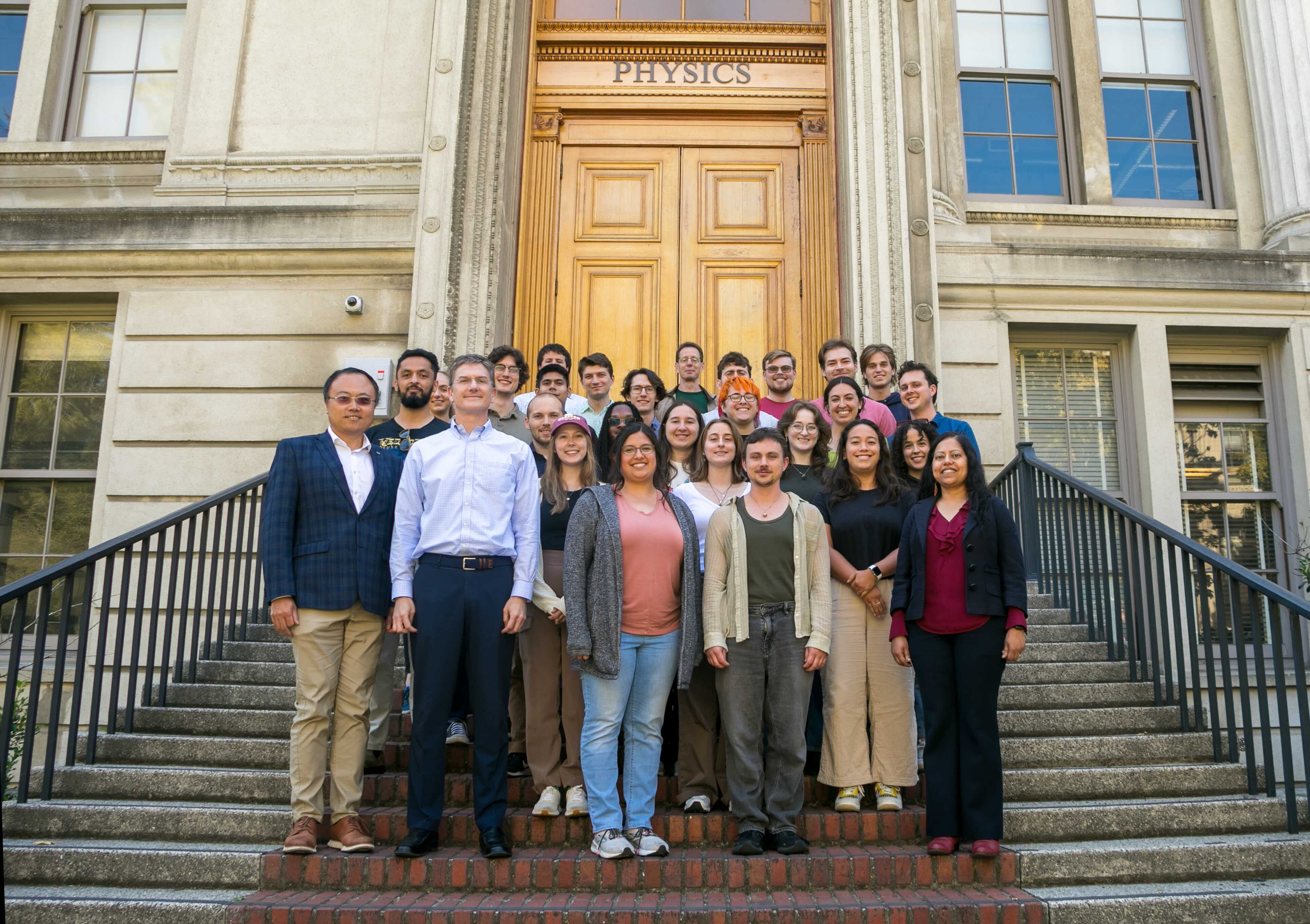Report on Summer School 2025 at Berkeley

Computational HEP 2025 summer school participants and instructors outside of Physics building at UC Berkeley. Photo credit: Haichen Wang, UC Berkeley / LBNL.
The Department of Energy Computational High-Energy Physics training programs combined again for the 2025 summer school, hosted by Lawrence Berkeley National Laboratory and University of California, Berkeley. The sessions held June 23-27 introduced hands-on development exercises, high-performance computing lectures, open-source software community introductions, and career panel discussions.
This training event was supported by the four Department of Energy programs TAC-HEP, WATCHEP, C2-THE-P2, and LGT4HEP. The school was held on the West Coast for the first time, and it was organized by mentors from the Western Advanced Training for Computational High-Energy Physics (WATCHEP).

Graduate student trainees worked in groups during a hands-on exercise with Git repositories. Photo credit: Paolo Calafiura, LBNL.
The trainees learned about virtualization in the DOE computing complex, computer networking from ESnet, and tools for development like Git, debuggers, and AI agents. A new panel compared the science workflows for different experimental projects in high-energy physics: energy, cosmic, and neutrino.
A career panel composed of DOE program manager, DOE lab senior leadership, lab staff, and university faculty introduced students to the breadth of opportunities for computational high-energy physicists in academia and the DOE.
The summer school program concluded with special tours of the Advanced Light Source under the landmark 184-inch cyclotron dome at LBNL and the Perlmutter supercomputer in the NERSC operations center.

Trainees and mentors visited the Perlmutter supercomputer and operations area at NERSC. Photo credit: Paolo Calafiura, LBNL.
The summer school was very successful in helping to build community within the cohorts. Student trainees had a chance to exchange news about their research projects and their experience in high-energy physics.
The detailed agenda and timetable for the summer school are online.